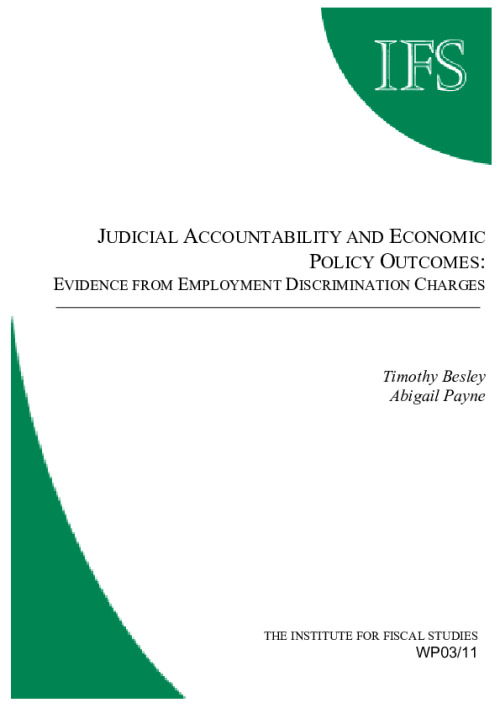How and whether judges should be held accountable is a key issue in the design of a legal system. Thirty-seven of the forty-eight continental states use some method of judicial selection which involves a direct role for citizens in selecting or re-appointing the judiciary. We identify two theoretical reasons why the method used for choosing judges is important (i) a selection effect if the competence or underlying preferences of judges is affected, (ii) an incentive effect if the judges who are chosen behave differently because of the method used for their reappointment. This paper uses data from the U.S. to investigate whether judicial selection methods affect the number of employment discrimination charges filed for the period 1973- 2000. Our results show that states that appoint their judges have lower levels of discrimination charges compared to those that use some form of election. The results appear to be driven by states where judges being subject to re-election incentives rather than because judges with different preferences/competences are being chosen.











